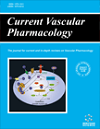
Full text loading...
This study aimed to investigate the factors influencing medication adherence in community-dwelling Chinese older adults with hypertension.
Empirical research–quantitative; Cross-sectional study.
A cross-sectional survey was conducted from September to December 2021, in which participants completed a self-administered questionnaire with detailed their demographic information. The Morisky Medication Adherence Scale-8, the Pittsburgh Sleep Quality Index, and the 10-item Kessler Psychological Distress Scale were used to assess medication adherence, sleep quality, and psychological well-being, respectively. Multivariate logistic regression analysis was performed with medication adherence as the dependent variable to identify factors influencing adherence.
The study included 867 patients with hypertension, comprising 566 women and 301 men with a mean age of 70.89 ± 7.50 years. Results indicated that 53.9% of participants exhibited high medication adherence, while 24.5% and 21.7% demonstrated medium and low adherence levels, respectively. Multiple logistic regression analysis revealed that individuals in the 50–59 age group had lower medication adherence compared to those aged 80 years and older (odds ratio [OR]: 0.468, 95% confidence interval [CI]: 0.245,0.894). In addition, participants with a primary school education or less (OR: 0.152, 95% CI: 0.095,0.245) and those living alone (OR: 0.362, 95% CI: 0.228, 0.575) exhibited poorer medication adherence. Conversely, living in an urban area was associated with better adherence (OR: 2.131, 95% CI: 1.402, 3.239, p < 0.001).
Our study showed that participants' medication adherence was below the desired level. It was observed that older adults, those with a junior high school education or higher, and those living in urban areas with their children had better medication adherence. These identified predictors may help to identify individuals at high risk of poor adherence, enabling the implementation of effective interventions to reduce the global burden of hypertension.

Article metrics loading...

Full text loading...
References


Data & Media loading...

